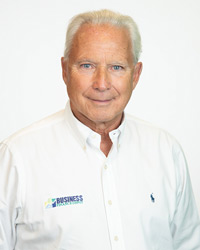Franchising: The New Expansion Wave in the Fitness Industry
- For this article, Log In to:
-
 Download PDF
Download PDF
 Paul Bosley
Paul Bosley
As an industry veteran of 49 years, I have witnessed profound changes in the fitness industry. I started working in sales in a privately held chain that merged in with Health & Tennis Corporation of America, owned by names that have become legends in our industry, including Jerry Kahn and Don Wildman. When our companies were acquired by Bally, the total number of clubs stood over 600 nationally, and the second largest chain was Gold's Gym with less than half that number of clubs. The only other chains which really operated as licenses were World Gym and Powerhouse Gym.
Our company started exhibiting in the franchise industry at the International Franchise Expo in NYC in 2016 and has been active in the industry since that time. Fast forward to today and our company has financed hundreds of new franchisees using SBA loans and equipment leases referred to us by Workout Anytime, HOTWORX, F45 Training, the Camp Transformation Center, Athletic Republic, Physical Therapy Now, Zoo Health Clubs, Augment and CKO Kickboxing. It seems like at every franchise expo, there are new fitness franchisors exhibiting to introduce their new franchise concepts, so in short, franchising in the fitness industry is exploding and very competitive!
What are the Advantages of Franchising?
As a member of the International Franchise Association (IFA), our company is aware of the many advantages of franchising. In an article that appears on the IFA website entitled, "What Are the Advantages and Disadvantages of Owning a Franchise," the main advantages listed are, "Owning a franchise allows you to go into business for yourself, but not by yourself." A franchise provides franchisees (an individual owner/operator) with a certain level of independence where they can operate their business. A franchise provides an established product or service, which may already enjoy widespread brand-name recognition. This gives the franchisee the benefits of a pre-sold customer base, which would ordinarily take years to establish."
One of the other main advantages of purchasing a franchise is that a new franchisee is more likely to receive financing approval for equipment leasing and SBA loans. The same IFA article goes on to state that, "A franchise increases your chances of business success because you are associating with proven products and methods. Franchises may offer consumers the attraction of a certain level of quality and consistency because it is mandated by the franchise agreement. Franchises offer important pre-opening support: site selection, design, construction, financing, training and a grand-opening program. Franchises offer ongoing support: training, national and regional advertising, operating procedures, operational assistance, ongoing supervision and management support, increased spending power and access to bulk purchasing."
When we meet a new franchisor, we first request their equipment list and their Federal Disclosure Document (FDD), which a franchisor must file with the Federal Trade Commission (FTC). Under the Franchise Rule, which is enforced by the FTC, a prospective franchisee must receive the franchisor's FDD franchise disclosure document at least 14 days before they are asked to sign any contract or pay any money to the franchisor or an affiliate of the franchisor. We present their documents to our leasing companies and banks, and we prequalify the franchisor for future equipment lease and loan approvals. Once we receive the green light for the leasing companies and the banks, it is simply a matter of submitting the specific information of the perspective franchisees for financing approval.
What are the Disadvantages of Franchising?
One of the main facts to consider is that a franchisee is not completely independent. Franchisees are required to operate their businesses according to the procedures and restrictions set forth by the franchisor in the franchise agreement. These restrictions usually include the products or services that can be offered, pricing and geographic territory. For some people who seek to be independent entrepreneurs, this is the most serious disadvantage to becoming a franchisee. There are also costs associated with purchasing a franchise, including an initial franchise fee, royalties and advertising fees. These are additional costs that a business must incur in addition to the regular operating costs of running the business.
Conclusion
It is important to first secure the FDD from a franchisor when considering purchasing a franchise. The FDD lists the number of franchises open, where they are located and their rate of success. Nearly all franchisors schedule a "Discover Day" when the prospective franchisee visits the franchisor's corporate office to determine if there is a fit for both parties. Perspective franchisees must be careful to balance the restrictions and the support provided by the franchisor with their own ability to manage their business. This evaluation process will ultimately lead to a final decision to launch a privately held business as an entrepreneur or to purchase a franchise.
• • •
For more information, go to www.businessfinancedepot.com. Or, please contact Paul Bosley, Health Club Experts.com dba Business Finance Depot at (800) 788 - 3884 or paul@businessfinancedepot.com.

